There is no way to better distinguish a gentleman from a boor, than by the method used to toast his cigar. Factoring in more than just the type of lighter used, one can tell a lot from the style chosen by the cigar or pipe smoking gentleman. Granted, there must be some time allotted for the young man who has never enjoyed a fine cigar and pulls out a gas station lighter. However, for any nobleman who engages in the delight of smoking, not having the proper lighting apparatus is not only an indication of inexperience but more-so, an insult to the tobacco he lights with it.
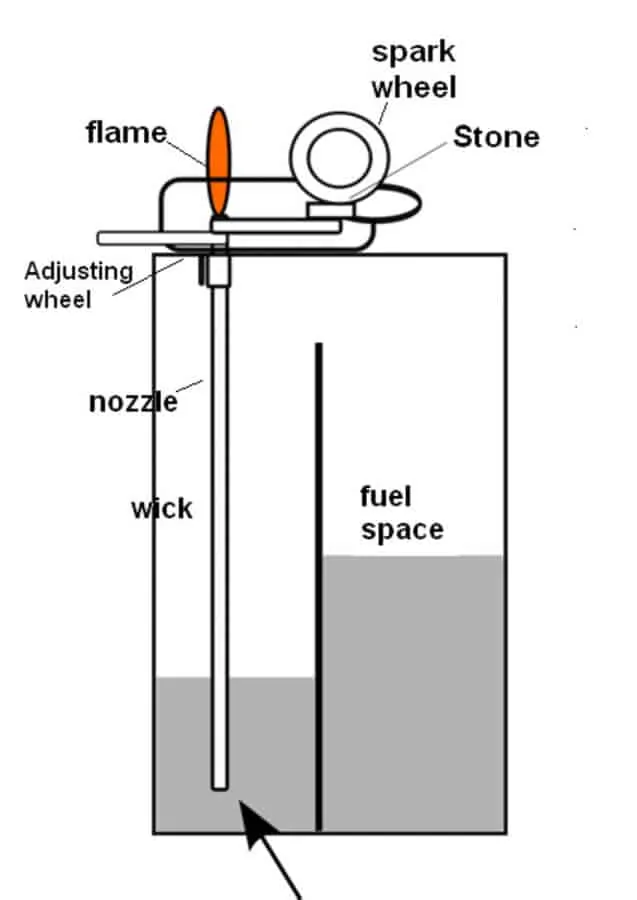
Butane Lighters are a Must
The fact remains that the only acceptable lighter to toast tobacco with is a butane lighter. The reason for this is that the fuel doesn’t affect the taste or aroma of the tobacco like the many fuels used in those basic lighters you can buy at any convenience store, gas station or smoke shop. Whether it be to light your cigar or your pipe, the quality of the fuel used is critical in ensuring you get an even burn without any chemical residues or flavors being transferred to the tobacco.
Another big benefit of using the torch lighter is that the flame is significantly more intense which makes it easier to quickly and evenly light the cigar or pipe that uses a damp tobacco.
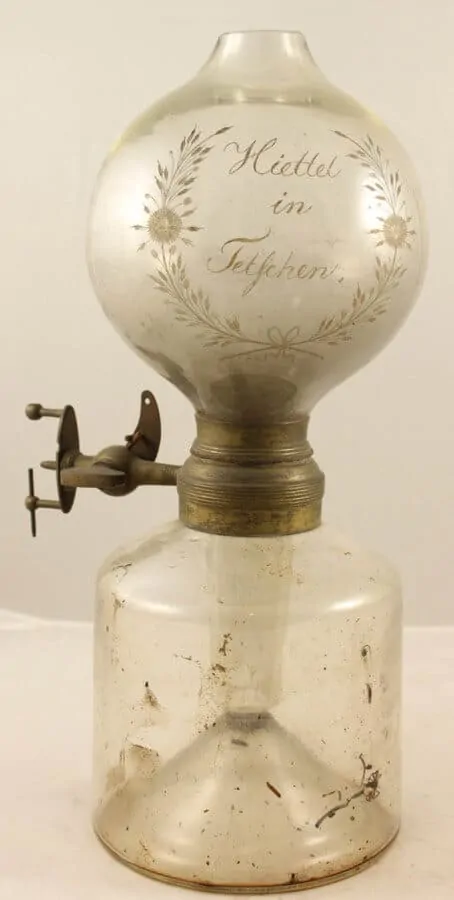
Cigar Vs. Pipe Lighters
Both cigar and pipe lighters should be butane. There is no exception to that rule. However, there are differences between the two types of lighters. Cigar lighters, or torch lighters as they’re often called, offer a far more aggressive and hot flame that rises from the top of the lighter.
A pipe lighter, on the other hand, is a softer flame that covers a broader area and usually jets from the side of the lighter which makes it easier to angle the flame into your pipe without burning your fingers. While both styles of lighters can be interchanged, for the true connoisseur it can be of the utmost importance to use the proper lighter.
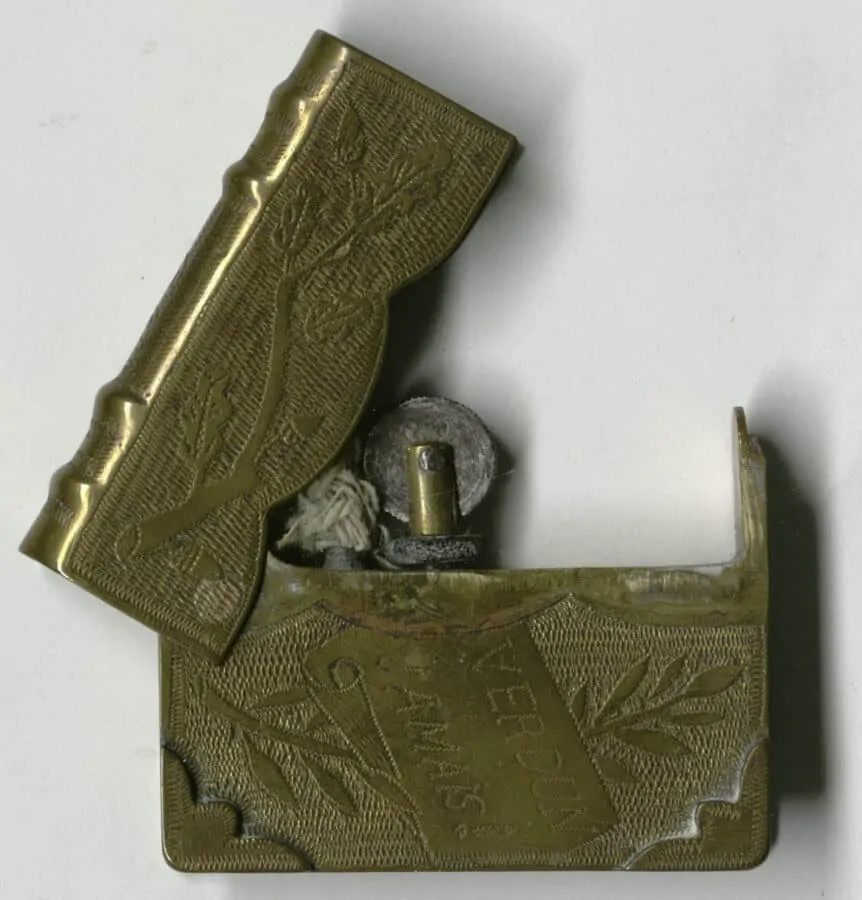
Why You Should Carry a Lighter
A lighter is like a handkerchief. Sure, you may use it yourself, but it’s there to lend to someone else in need. Just because you don’t plan to smoke a cigar during your afternoon walk, doesn’t mean that you won’t stumble upon someone else in need of a light. Having the ability to offer it is a practice that dates back to the Victorian era when men would retire to their drawing room after dinner for a cigar with their fellow guests. This history continued throughout much of the Edwardian era and still continues to this day in many aristocratic households. As the tradition goes, it would be up to the host to offer the lighter around the room for men to use. This was partly due to the etiquette of entertaining, but also because lighters were not as safe or small back then, and you stood less of a chance of lighting yourself on fire or having gunpowder leak into your pocket if you just relied on the lighter offered by the host.
Today, lighters are far more compact and safe to carry. As traditions became more modern, it became a polite necessity to carry a lighter with you. This tradition grew in popularity with the mass-marketing of cigarettes in the 1940s and 1950s, continuing well into the 1960s.
With a significant percentage of the adult population smoking tobacco, odds were that you would regularly be asked for a ‘light’ while promenading through town. Today, most smokers do carry their own lighter, but there are many times where you will still be asked to lend a light to someone in need.
Of course, lighters are useful for many things, in addition to lighting a cigarette, a pipe or a cigar. One uses them regularly for candles, cooking or even welding. A torch lighter is useful for all of these things and it’s a premium lighter that works in every situation. Certainly, you could purchase a BIC or Zippo lighter for a few dollars at your nearest gas station, but the quality of the fluid is unacceptable for cigars and pipe tobacco, and it can’t be switched out for premium butane as easily as many seem to think. By having a torch lighter in your pocket, you’ll be assured you have a suitable lighting instrument when smoking cigars, but you’ll also have a lighter that can perform many other tasks a gentleman might find himself being requested for.
My lighter of choice for everyday carry is the Xikar Executive, which you can almost always find in my pocket.
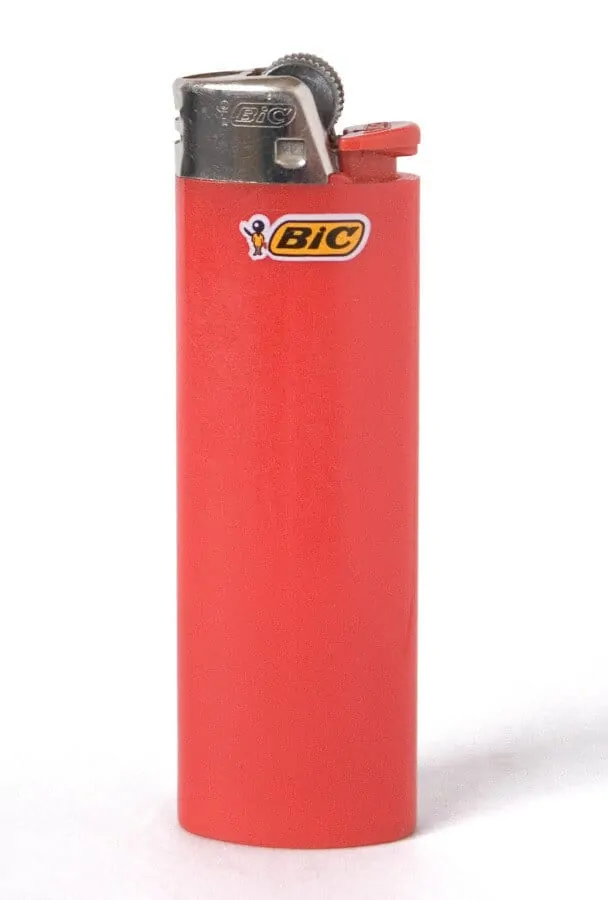
Traveling with Lighters
I’ve learned the hard way that one should never travel by air with a lighter. For me, it was a matter of forgetting I had one with me. I was so used to just grabbing it along with my wallet, handkerchief, keys and cell phone from my valet that I neglected to remember they are illegal to travel with. At the time, I was carrying a fairly expensive S.T. Dupont lighter and when I emptied my pockets at security, I was given the option of surrendering the lighter or missing my flight. I surrendered the lighter.
There is nothing worse than learning this lesson the hard way. Butane lighters are prohibited from flying with, whether it be in your carry-on or your checked luggage. Leave them at home.
The best advice I can offer if you plan to smoke a pipe or cigar on your trip is to simply buy an inexpensive butane lighter or wooden cigar matches upon your arrival. You can usually find a fairly cheap metal torch lighter for the ten-dollar mark and most shops will fill it for you upon purchase which prevents you from also having to buy fuel. The other option is to smoke in a cigar lounge exclusively, where there are usually house lighters available for you to use.
One final tip that I often do myself is just to buy a single cigar when I want to smoke it. Most tobacconists will be happy to cut the cigar for you and light it. If you do want to save it until you return to your hotel or get to a certain place, they will usually offer you a free match box or at least a couple of matches to get the job done. I’ve never been refused this and even though I always offer to pay, in my experience they have never accepted money for it.
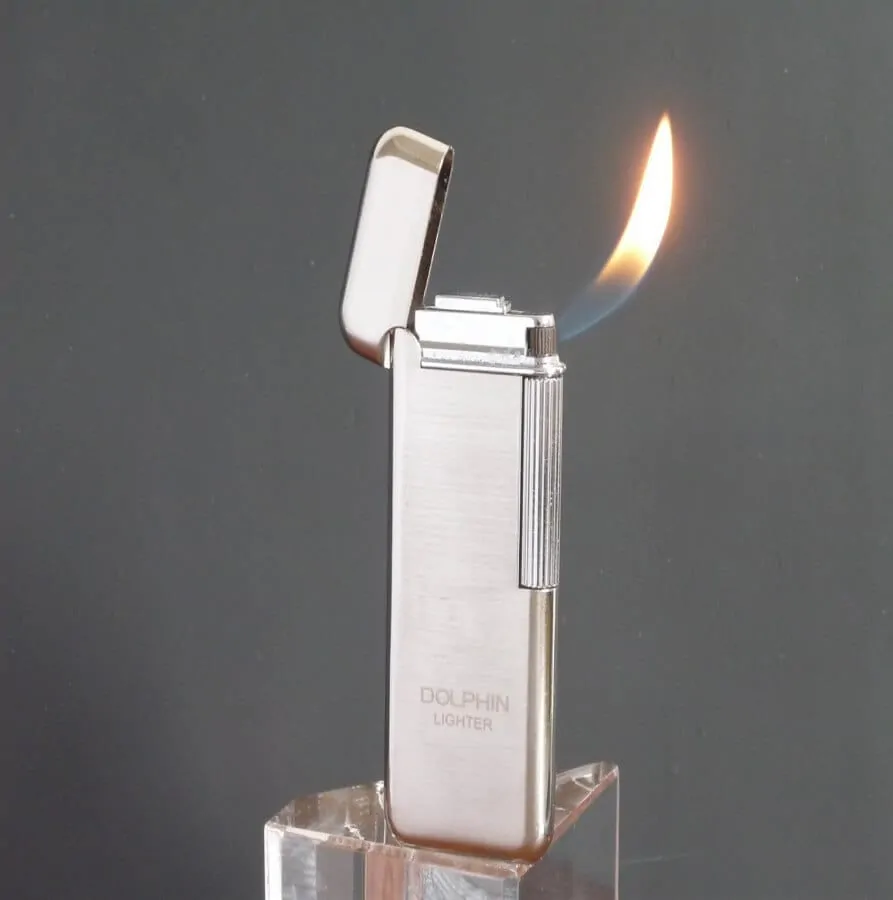
Types of Flames
Most torch lighters come in three styles. Single flame, double flame and triple flame. Of course, over the years, manufacturers have competed against each other by introducing more flame options, but for the most part, three is the most you’ll ever need. The biggest benefit to more flames is the ability to light a larger circumference, evenly, and at the same time. For those who smoke larger ring gauge cigars, this can be highly desirable. The second reason some men purchase double or triple flame lighters is simply because of the appearance. However, I will note – for what it’s worth – that on a personal level, I much prefer a single flame as it offers more control over the light and, in my opinion, looks far more elegant than a beastly three flames scorching your cigar.
Recommended Lighters
There are many lighters on the market available for cigar and pipe smokers. However, most of them I would avoid at all costs. With a lighter you get what you pay for and having a high-quality lighter means the difference between getting an even and quick light or having a lighter that gets clogged doesn’t burn evenly or can be dangerous to use.
My standard rule of thumb is that if you can buy the lighter anywhere other than a reputable tobacconist, it’s not worth your money. Even in the event it clearly advertises itself as a torch lighter, avoiding the Zippos and BICs from 7-Eleven and other convenience stores is always critical.
I’ve owned many lighters over the years, and these are the brands I have been consistently impressed with.
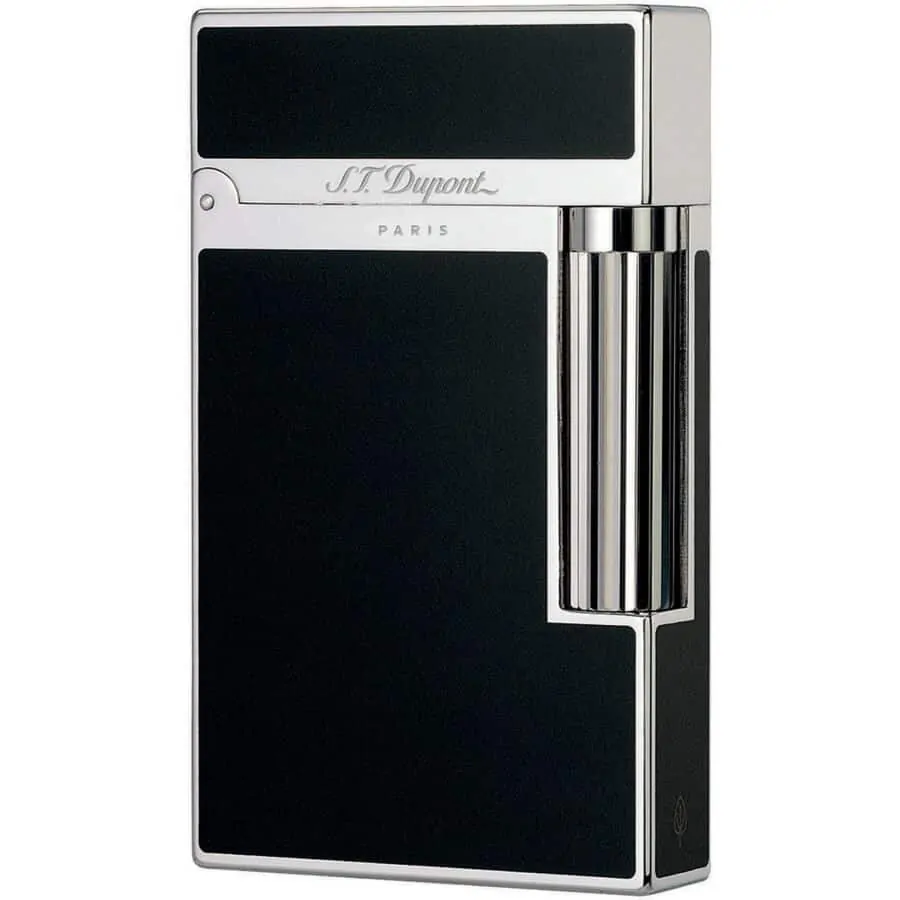
S.T. Dupont
The lighter of the most discerning gentleman, S.T. Dupont is a producer of high-quality luxury accessories. The lighters produced by them are as much of a tool as they are a piece of art, and the limited editions can cost thousands of dollars as they’re handcrafted and made from precious materials. S.T. Dupont also sells some resplendent lighters that start at just a couple hundred dollars. Still far more elegant than the gaudy Ferrari, Lamborghini, and Bugatti lighters, they offer classic design and workmanship that is comparable to any other premium torch lighter on the market. If you have the money, I highly recommend a lighter from S.T. Dupont. Click here to get your own S.T. Dupont lighter.
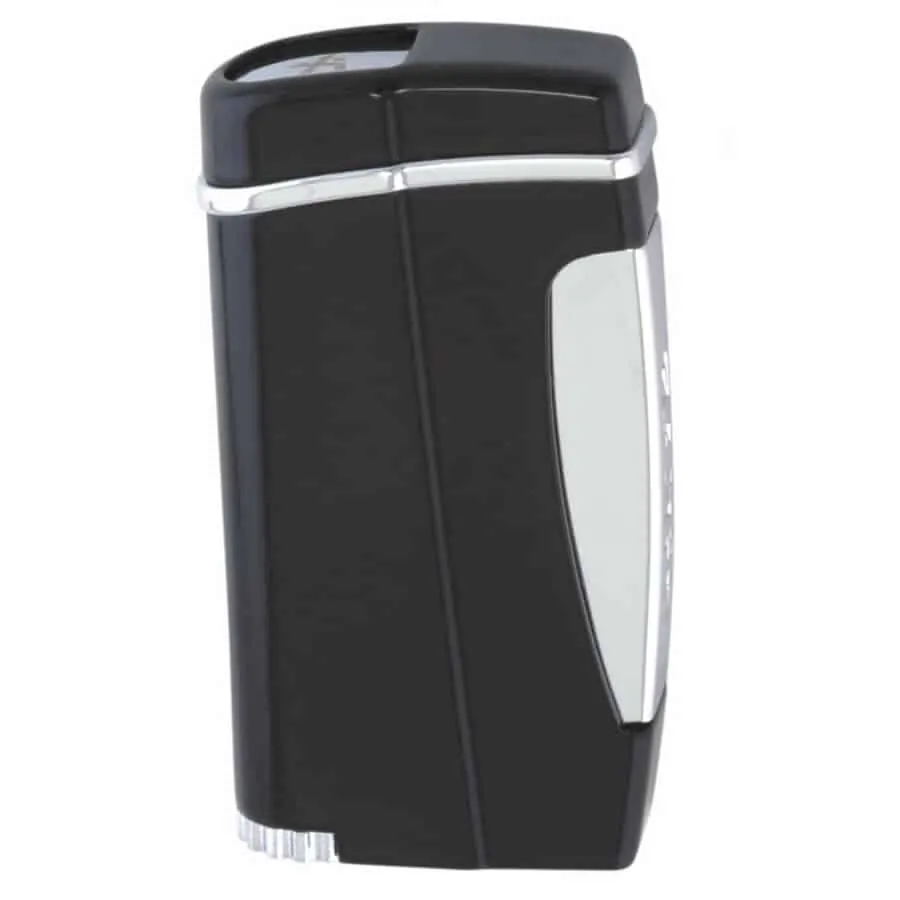
Xikar
My second favorite cigar lighter brand, Xikar lighters are less expensive than S.T. Dupont but offer a consistent light that is revered by its loyal customer base. The lighters they produce come in various shapes and styles, but every one of them is well made and is consistently hard working for you as a daily lighter or as the occasional lighter brought out after dinner parties. For everyday carry, Xikar is my top choice. Click here to buy the same lighter I use.
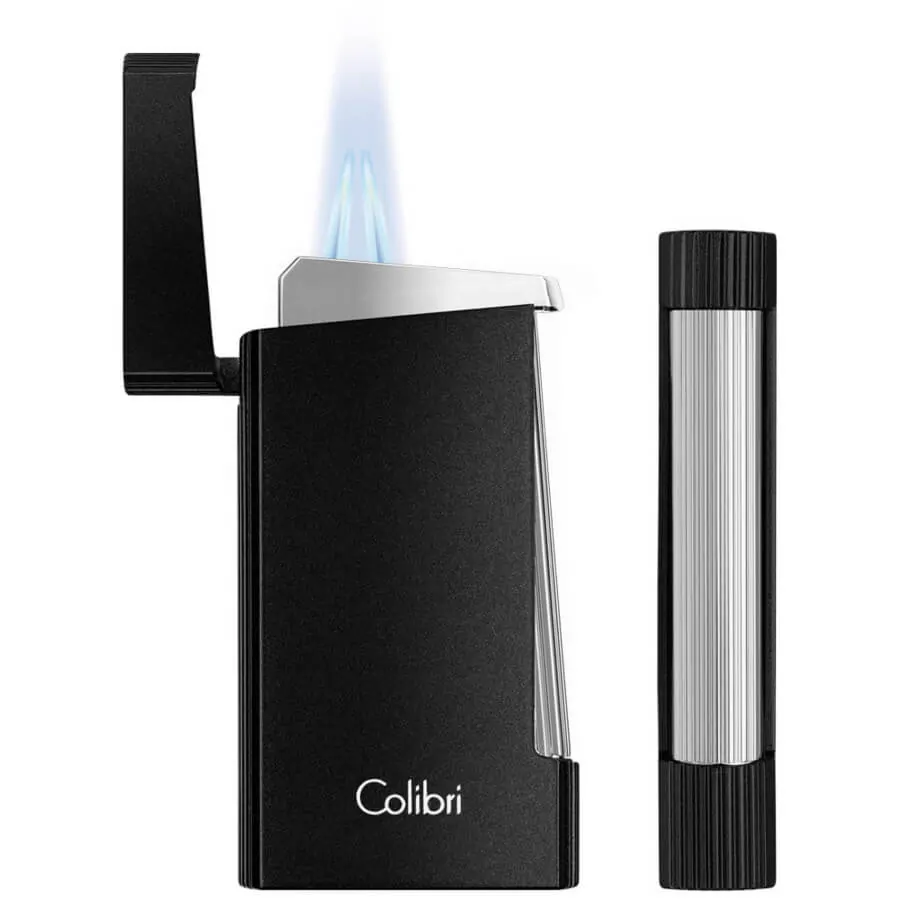
Colibri
Colibri is another well-known brand that makes various cigar accessories. It’s not a brand that I use regularly, but I have a few of them in the back of the drawer I keep my tobacco accessories in. Colibri was the first torch lighter I ever owned, and it was one that worked very well for me. Their lighters tend to be priced on the lower-end, ranging from about $20 upwards of $50, but they offer consistent lights and are excellent for the new cigar smoker for the aforementioned reasons as well as the lack of maintenance required. Click here to get a Colibri pipe lighter.
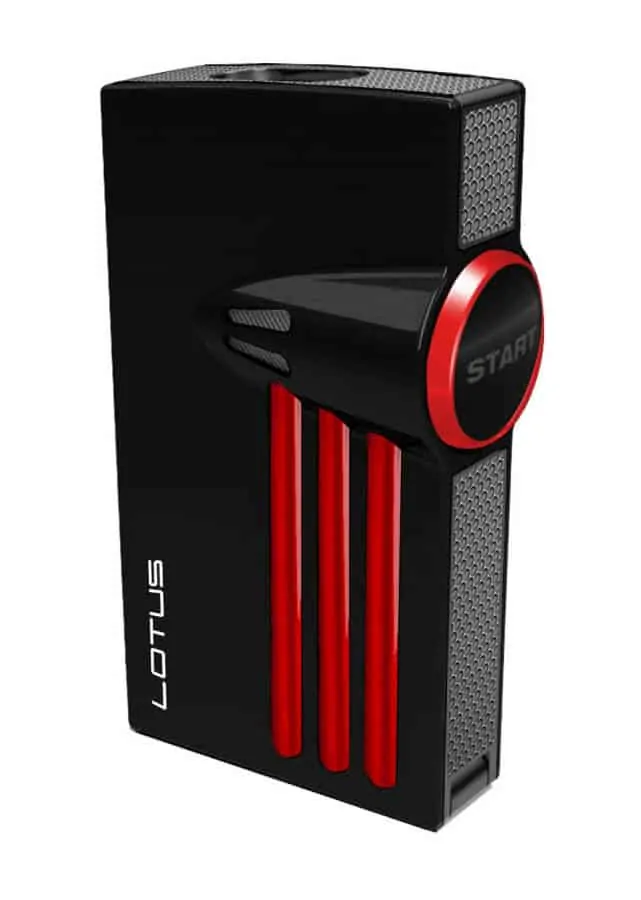
Lotus
A well known European lighter brand, Lotus makes a variety of lighters but specializes in more contemporary offerings that pay homage to sports cars and aviation. They are quite reasonable and range in price from around $50 to over $150. Overall, they make very attractive lighters that look more expensive than they really are. For the modern gentleman looking for a conversation piece at an inexpensive price, Lotus might be your best bet. When compared with your friends Zippos you’ll be a shoe-in for the win every time. People will notice. For an even less expensive lighter, it might be worth considering the Vertigo range by Lotus which has a very industrial appearance. Click here to buy a Lotus lighter today.
The Lighter Fluid
Let’s be clear about one point: Your lighter is only as good as the fuel inside it. Butane is the only acceptable fuel that should ever be used for a cigar or pipe lighter, but that doesn’t mean all butane is the same. Xikar often compares their lighters to fighter jets, and there’s a reason we don’t fill up a fighter jet at the Piggly Wiggly. When it comes to quality butane, you want the purest fuel available with the lowest possible level of impurities. This means that just as you would avoid Zippo lighters, it’s wise to avoid their butane as well.
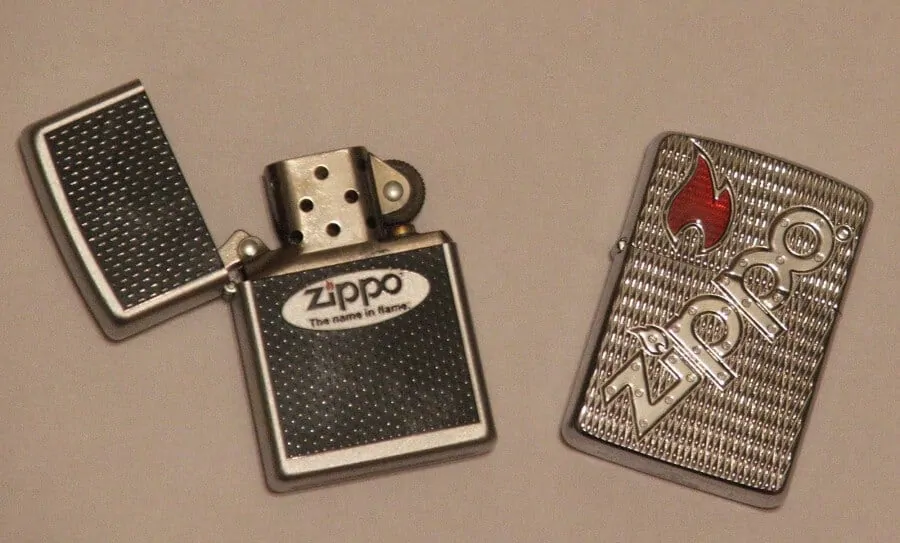
I only use Xikar Purofine as it has some of the lowest levels of impurities at just 15 parts per million. By using a high-quality butane, I’m ensuring that my burner valves don’t get clogged and that my lighter doesn’t suffer from misfires. There’s no point in having a good quality lighter if it won’t light well. Click here to buy the same fuel I use to refill my lighters.
Conclusion
Lighters are tools for cigar and pipe smokers that cannot be undersold. The fact is that they are vital to the enjoyment that a fine cigar can offer and using the wrong fuel, or a poor lighter can flat-out ruin the experience.
What kind of lighter do you use and what fuel do you put in it?
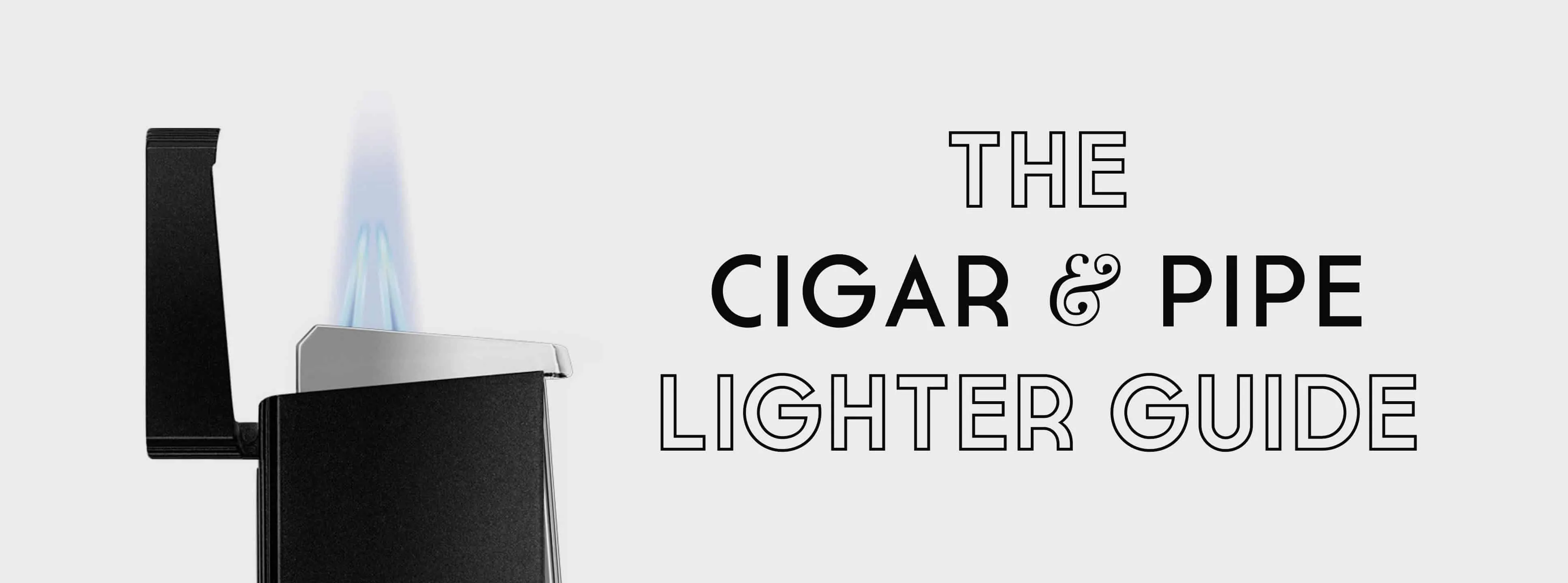

Even though I stopped smoking cigarettes 42 years ago, the engraved Zippo my wife gave me in 1970 still does a wonderful job lighting my occasional cigar even in windy conditions. WCD
Indeed there is an alternative to flying without your lighter. This lighter shell will turn any cheap c-store 99 cent throw-away into a nice torch for your cigars with this tool. I’ve been travelling with one for the last 2 years. Enjoy the lighter and feel free to check out our cigar reviews.
The other acceptable ways to light a cigar include cigar matches and the oh so elegant cedar spill (which you can watch at the end of this video from Cigar Aficionado): https://youtu.be/xF2ir96lHkU
What about dunhill lighters they ate very reliable and extremely elegant and as good as dupont. Why you did not include them in your list at the same level as dupont
The Dunhill reputation is exemplary, but I have never used one of their lighters before. Since I’ve never tried it, I can’t review or recommend it. Although I’m sure they’re marvelous, our readers, like yourself, depend on our personal experiences in order to determine if it’s worthy of consideration.
Yours sincerely,
J.A. Shapira
EDITOR | Gentleman’s Gazette
Allow me to correct one misconception on your part.
Even the cheap gas station lighters are filled with butane fuel.
Correction:
Sorry for jumping the gun: I commented before reading the entire article.
You’re right about the purity of the butane.
My apologies.
A tobacconist specialized in cigars, the best I know in Geneva, the cigars’ second place after Cuba, told me one day few years ago even the S.T. Dupont have now a mechanism made in china. So, I prefered to buy a lighter entirely made in china, for about $7, and another one (with two flames but also with a punch hole cutter at the bottom, which is pretty convenient), and after about four years they still do the job.
Several flames means more waste and less economy. The best for cigars are a single, little torch flame.
It is real it is important to use the proper lighter and the proper gaz. One time I lit my cigar with a cedar match, yet not in the proper manner because I was distracted since it was very windy, so I tried to hurry and I made the mistake: the lighting part (containing this mineral I forgot the name in english, it is red on regular matches) wasn’t completely burnt when I lit and it completely altered the cigar’s taste until its end. Cigars are delicate, probably more than pipe tobacco, so it worths to be careful.
I use th Porsche Design P’3634 lighter. I am quite happy with it…
One correction for this. While torch lighters are not allowed in carry-on luggage for a plane, soft flame lighters such as you use for a pipe are allowed to be carried onto the plane.
Ok gentlemen, I must correct one grevious error here. As a welder, shop teacher and a gentleman myself, I feel compelled to remind everyone that it is NEVER safe to light a welding torch with a lighter. Contact with the case by a welding flame can cause immediate ignition or explosion and lead to injury or death.
Just my $.02
I was a tobacconist for about 10 years and read a lot on this subject. Although the Naptha fluid in a Zippo lighter does impart some taste on the cigar or tobacco, most experts agree if you let the Zippo flame burn for several seconds before touching it to the tobacco, the Naptha taste is minimized and almost undetectable. I’ve found this to be quite true, although when smoking the highest quality or rarest cigars I will only use a butane torch to be safe.